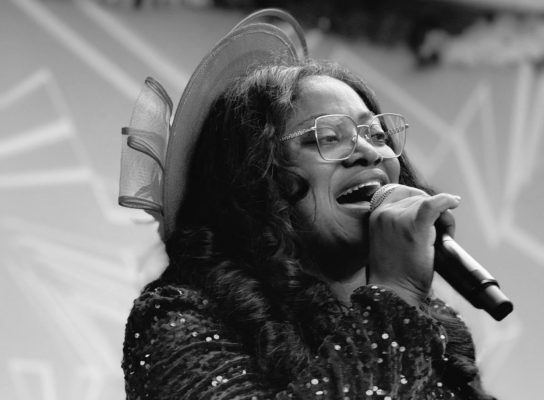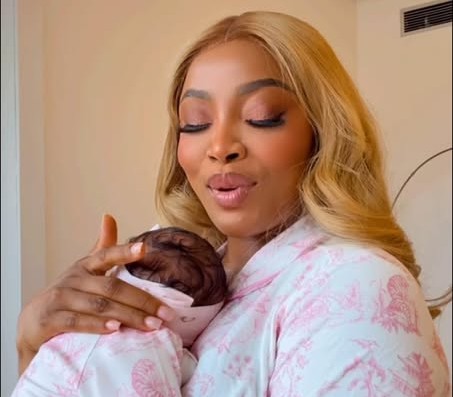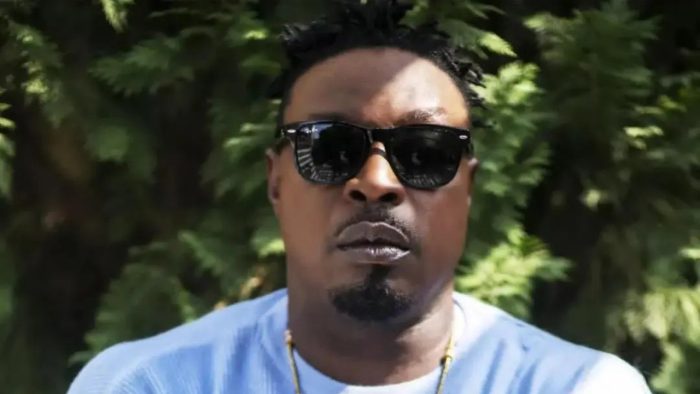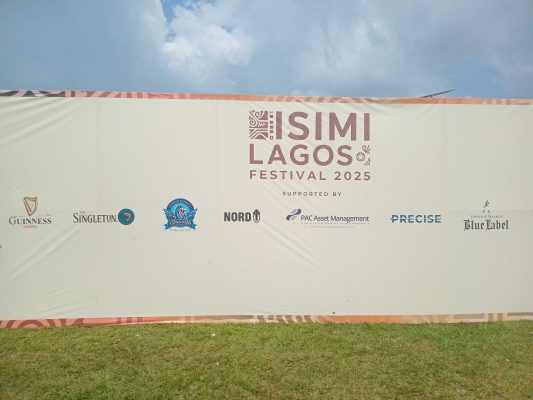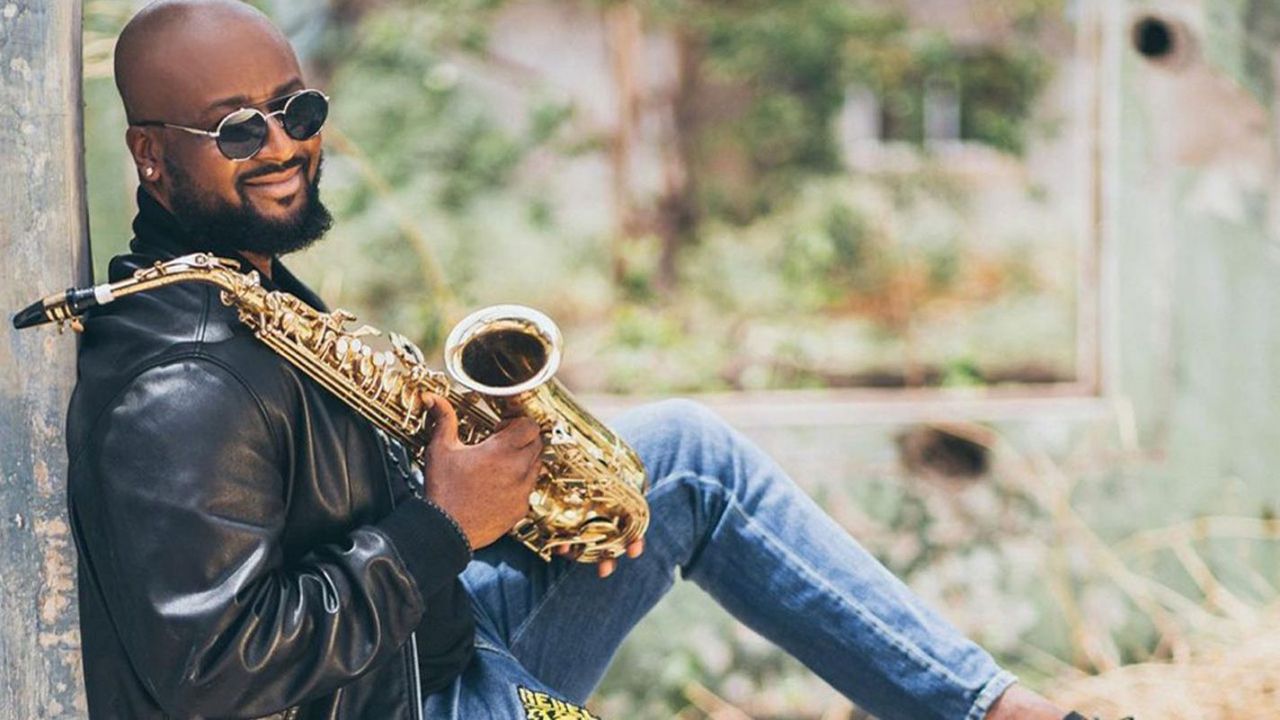
There is little you can get on William Onyeabor, Nigeria’s pioneering electronic funk enigma of the 70s and 80s. The music innovator remained a recluse from his 1977 debut, Crashes In Love, till his final album, Anything You Sow, in 1985.
[ad]
Onyeabor, who never performed his music live, toured, or even featured beyond cameos in his music videos, was an iconic voice in his own world. His intriguing mastery of electronic equipment like multi-tracked synthesisers were decades ahead of its time, with most of his radical funk fusions still igniting European dance-floors till date.
The Enugu-born singer, multi-instrumentalist and record producer travelled the world, from Russia to Sweden, importing knowledge and technology to kickstart his Wilfilms independent label back in the ‘70s.
He continued to bloom with his hyper-paced danceable bops that mostly criticised the government or talked about love or life. And his Wilfilms label was more technically advanced than any of the other major music labels in the country at the time.
Onyeabor reached career crescendo after his last album, in 1985. He quit the art and divested his legacy to his business empire in his hometown, earning multiple accolades in the business world. He became even more reclusive and devoted his life to his Christian faith.
Despite the odds, Onyeabor’s music fought for its own comeback. It started in 2001, after two of his hits, Better Change Your Mind and Atomic Bomb were reissued in the compilation, Nigeria 70: The Definitive Story of 1970s Funky Lagos, and, again, in 2013, after the American label, Luaka Bop, released a compilation dubbed, Who Is William Onyeabor? The music travelled on its own, fulfilling its destiny despite its maker’s apathy.
[ad]
Up until his death, in 2017, the self-produced, vinyl-pressing, hat-wearing funk master lived in plain sight, blurred from his illustrious legacy.
“After his death, people began to ask about which of his (four) children were going to take up his legacy,” Charles Onyeabor, his heir apparent tells Guardian Music. After migrating to Italy, in 2003, Charles Onyeabor equally shared in his father’s reclusivity, although for different reasons.
Now, the young musician and businessman has begun to try to fill the shoes his father left behind. His recently-released debut album, Like Father, Like Son, drifts away from the psychedelic funk and synthesised disco of his late father; and it leaps fully into the gleaning embrace of contemporary Afro-pop.
It pays homage to his parents, and explores themes of love, unity, oppression, and other didactic themes tucked in between party bops. While his voice reigns uniquely from his father, his pedigree unlocks treasured nostalgia into the late electronic funk royalty that was William Onyeabor.
Catching up with Guardian Music, Charles Onyeabor opens a window into his enigmatic musical heritage, reminiscing on fond memories with his father’s music; his come-up, as well as his creative processes and inspirations behind this brand new legacy-driven record, among others.
Congratulations on your new album. What’s it about?
THE album is more or less a continuation of my father’s legacy. If you look at the album cover you would notice a lion and a cub. The lion represents my father while the cub represents me. I am just trying to show the whole world that even if my father is no more his legacy continues.
[ad]
When did you start a career in music?
I came to Italy to start music, but when I got here, there was too much racism. I had to forget about music and focus on surviving. I forgot about music for 18 years. Nobody knew anything about my musical background, until my father died in 2017 and everybody started asking, which of his children could sing. Everybody kept asking questions. I wasn’t sure if I wanted to do music yet, until the COVID-19 lockdown, in 2020. That was the only time I had time to reflect on my life, my regrets. I thought to myself that if anything happened to me, what would be my legacy. It felt like I should have been doing music. It was a wake-up call to me.That same year, I released my debut single, ‘They can’t pull us down.’ That was how the journey commenced.
What influenced your style?
I can’t say I chose a particular style. I write songs the way I hear it in my head. Being around my father also inspired my taste of music. If you listen to my music, there is always a story around it. My father always had something to say within his music and it made me want to do the kind of music that I am doing. So, I would say my father inspired me to have my own style.
Do you have any earliest memories with your father in the studio?
I remember the day he was telling me a story about when they were making the song, Atomic Bomb. The guitarist was making a lot of mistakes, because he smoked a lot of Indian Hemp, but he wasn’t able to smoke that day. My father never liked people smoking around him. So, they stayed for hours trying to finish the song but they didn’t succeed. My father had to leave the scene. Before he came back, the instrumentalist was already high and then they were able to get the song correctly. We were in the studio the day he was telling me that story. I saw most of these things myself.
Do you hold any fun memories of a creative process he held?
Well, the truth is, I hardly joined my father in the studio when he was immersed in his creative process; I joined only once in a while. However, I can testify that when my father is writing a song, sometimes, he would be in the bathroom and would just rush out with only a towel on. He would then write down something. He would go back to the bathroom and start beat-boxing and he could spend several hours in the bathroom. I was very young then and it all didn’t make sense to me, but they make sense to me now. There are even other things I cannot remember now.
[ad]
Do you have any creative process?
My own case is kind of strange. Most of the time, my own creativity happens in the car. That is when I have my alone time to play the music as loud as I want. While I am playing a beat in my car, things start coming to my head. Some other times, I could be alone in the house and start hearing melodies inside my head. For instance, there is a song called , Jolly, that I made. I woke up one midnight to go to the bathroom and I was hearing the song in my head. I recorded it roughly with my phone and went back to sleep. The next day I wrote everything down again properly and went to record it in the studio. Sometimes, I might just be thinking of something that happened recently. I just wrote a song last week. It was inspired by someone who was complaining to other people about my reaction to something he did but he never told them about what he did. When I told them about his actions, they all understood that he caused it. I put all of that in the song.
What are some of your favourite songs off the project?
My favourite there is, Loving till the end. That song is really important to me. I was able to express myself in it. I was telling a story about love that was not reciprocated and I was encouraging others to still always love till the end. My second favourite is, Dance your troubles away, which was inspired by one of my father’s songs, Body and soul. Thirdly, ‘grateful’ because I am always grateful to have been my father’s son. I actually love all my songs because they are sweet. If you listen carefully to my songs, you would notice that I am just being myself. It’s music for people who really love good music.
You had some interesting features. What informed those?
I have always loved Magnito. I wrote the song, Like father, Like son, and I recorded it. However, my rap wasn’t as good as it used to be many years ago. So, I then thought about Magnito. I spoke to him and sent him the song. He loved it and he recorded his own verse and he actually killed it. Evry is a Nigerian guy born in Italy. He grew up here and he is more Italian than Nigerian. He speaks fluent Italian. He has an accent. I needed the English-Italian vibe to my song; because of my Italian fans. We made two songs together, We all need more love, which went on MTV. Then, we made Do it your way, which everyone loved. I also worked with Miriam Taylor on my debut single, They can’t bring us down. Taylor was my vocal coach who inspired me to do music. She was training me and somehow while I was practising, she dropped some vocals that day and I told her that I wanted her on that song. The last feature was with Creep Guiliano, a song that I wrote for my mum called Still your baby. So, I also needed the Italian people to understand the song. So, it was quite strange for Italians. When they hear my fusions on the radio, they really like it.
[ad]
Are you touring with this album anytime soon?
Right now, I am taking care of myself. The project is big and I am planning to know if I should go on a tour. Before now, at least until December 24, 2023, I had been performing. In March 2023, I performed with P-square in Munich, in front of 6,000 people. I plan on going on tour later this year. We have a lot of things in the works.
Do you often visit Nigeria?
I do. Nigeria na my place o. Na me be first son; so I dey come a lot.
What is the vision for Charles Onyeabor?
I hope to be a better version of my father. I am planning on having a much bigger career beyond music. I have also wanted to be an actor; so, I am working towards that. My first project might be produced by me. The vision is to get better and continue the Onyeabor legacy. One of my father’s songs was licensed by H&M last year. Apple used one of his songs for an ad a couple of years before that, for the iphone 7. I just pray to be way bigger than my dad; that’s every father’s prayer.
[ad]




